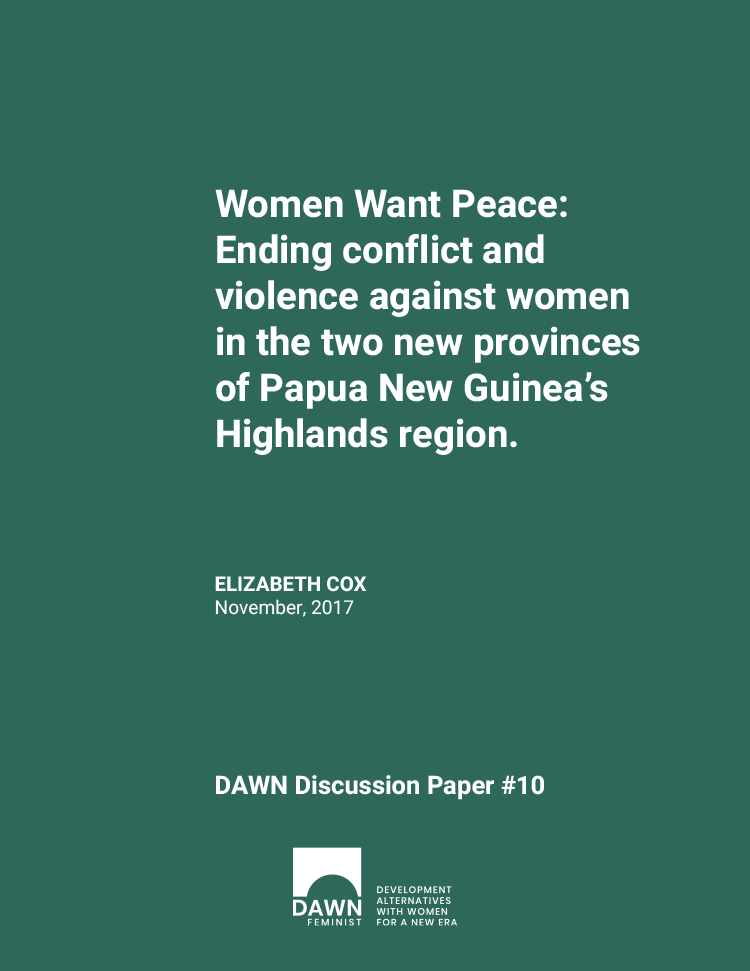This chapter examines violence against women in two recently established provinces in the Highlands region of Papua New Guinea. Both have a legacy of tribal conflict and wars, and high levels of violence against women. Hela province was born out of a local tribal competition, and the demand of the dominant tribe for electoral boundaries that would enable them to gain monopoly control of promised shares, royalties and other benefits from the exploitation of rich liquified natural gas (LNG) resources. Jiwaka was created to relieve population pressure and bring government presence, administration, goods and services closer to remote rural and agricultural communities. With the serious decline of the coffee industry, introduced to accelerate economic development in the last decade of Australian colonialism, Jiwaka’s greatest productive resource is its fertile land, its proficient female farmers and proximity to local and national markets.
Hela Province, is ‘resource-cursed’, impacted by vast mining, oil and gas projects that have expanded over twenty-five-years, in a context of chronic under-development, lawlessness, frequent declarations of state of emergency and deployments of special mobile police forces and military to put down landowner unrest and protest. Delivery of basic goods and services is minimal, constantly disrupted, and women are subjected to a horrific combination of old, new extreme and mutated forms of violence.
The politicians and people of Jiwaka Province may consider themselves less fortunate because they have no known, exploitable natural resources and no immediate prospect of large-scale extractive industries. Theirs is an agricultural province, with an ailing male-dominated coffee industry but a dynamic and diversifying women- led food production and trade that is the real cornerstone of the local economy.
The chapter explores the political economy of conflict and violence in two divergent development settings, analyzing the impact of men’s development priorities and decisions on women’s organization, productivity, opportunities and agency in local social and economic development. It explores the space afforded (or denied) to women to organize and to work with men to influence government and to challenge and change the subordinate status of women, the harmful customary and contemporary practices and the specific and mutating conflicts and weapons that Highlands men use to control, diminish and terrorise women.

